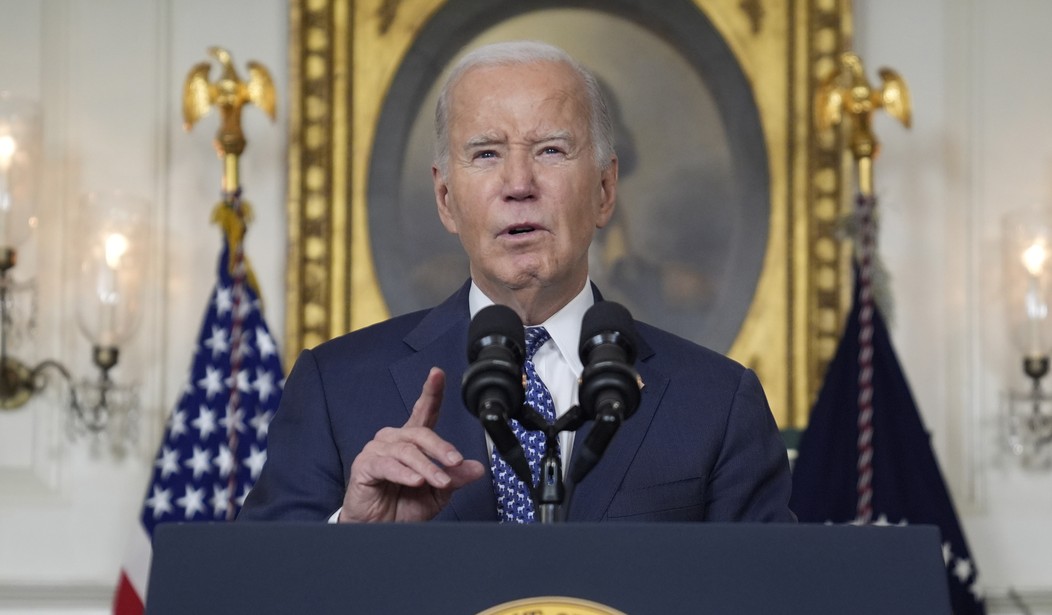Today, millions of Americans who freelance full-time, part-time, or on an occasional basis are learning about their fate as independent contractors.
Under the Department of Labor’s now finalized Final Rule: Employee or Independent Contractor Classification Under the Fair Labor Standards Act, effective today, the Biden administration will make it harder for American workers to work independently of a traditional employee-employer relationship under the Fair Labor Standards Act. Don’t take my word for it. Even Courthouse News reported this rule would forcibly convert sole proprietors into employees against their will.
Independent Women’s Forum Center for Economy Opportunity Director Patrice Onwuka explains the new Biden rule “utilizes a six-factor test to determine if a worker is an employee or an independent contractor—a more stringent standard than what is currently in place.” The rule, she argues, will have a chilling effect on both independent contractors who engage in 1099 work and small businesses who hire these independent workers–with added constraints expected to be placed on the latter to hire these workers as employees.
This mirrors California Assembly Bill 5, which instituted an unreasonable ABC test that reclassified most California independent contractors as employees. Since January 1, 2020, the law has required workers to check off all three prongs to keep their IC status:
An individual providing labor or services for compensation is considered an employee and not an independent contractor unless the hiring entity demonstrates that all three conditions of the ABC test are satisfied:
Recommended
The individual is free from the control and direction of the hiring organization in connection with the performance of the work, both under the contract for the performance of the work and in fact.
The individual performs work that is outside the usual course of the hiring entity’s business.
The individual is routinely doing work in an independently established trade, occupation, or business that is of the same type as the work being performed.
Why the crackdown on independent contractors federally? Union membership continues to decline year after year, with a paltry 10% of the workforce barely holding union jobs. President Biden is beholden to Big Labor, a powerful Democrat constituency and funder, and they want to boost public sector unions by mandating membership as a condition of employment. Without saying this directly, proponents have used a workaround: arguing there’s rampant worker misclassification in the economy and billions of revenue diverted by evil and greedy companies who hire and retain independent contractors. They argue independent contractors, who voluntarily choose to work in flexible arrangements, are exploited and therefore need rescuing from labor unions.
Existing labor laws already prohibit companies from engaging in worker misclassification and impose stiff penalties on lawbreakers. Much to the chagrin of freelance busters, the cost of forcibly reclassifying workers is far more economically devastating with a price tag ranging between $18.4–$61.4 billion.
A new George Mason University study found CA AB5 led to a major displacement of freelancers from the workforce–with worker reclassification reducing “the level of overall employment by 4.4 percent.” But facts don’t matter to them.
Nevertheless, several measures can be taken to stop this rule from going into effect by either using the Congressional Review Act or filing lawsuits.
Representative Kevin Kiley (R-CA) and Senator Bill Cassidy (R-LA) recently introduced a bicameral resolution to trigger the Congressional Review Act (CRA) to invalidate this DOL rule. It’ll likely pass through both chambers of Congress, but be met with President Biden’s veto. Nevertheless, the merits are good.
Given the dynamics in Congress, lawsuits will likely be our saving grace in this situation. Relatedly, a judge just blocked the Biden administration’s joint employer rule, finalized in October, from going into effect.
As of this writing, there are five lawsuits challenging Biden’s DOL rule. One lawsuit, led by Fight for Freelance activists, argues the following:
This rule doesn’t protect freelance writers and editors like us or any of the independent contractors in hundreds of professions ranging from trucking to financial services. Instead, this clear-as-mud rule gives the department carte blanche to impose regulatory wrath on any of our clients as it sees fit. Our clients then can face serious fines and penalties for working with us as independent contractors, and our freelance businesses go poof. Even if we’re registered as limited liability companies. Even if we negotiate mutually agreeable contracts. Even if we, as small business owners, have no desire to be anyone’s employees.
The economy is trending flexible and freelance. It’s time unions and Big Labor got with the program, but they won’t because it means diminished influence.
A fall 2023 Freelance Forward report from Upwork found 64 million Americans - or 38% of the workforce - performed freelance tasks that contributed “$1.27 trillion in annual earnings to the U.S. economy.”
I was a full-time freelancer for 7.5 years until last November, yet I still do it part-time because I like having a Rolodex of work and diversifying my income.
Join me in declaring this: My labor, my choice!

























